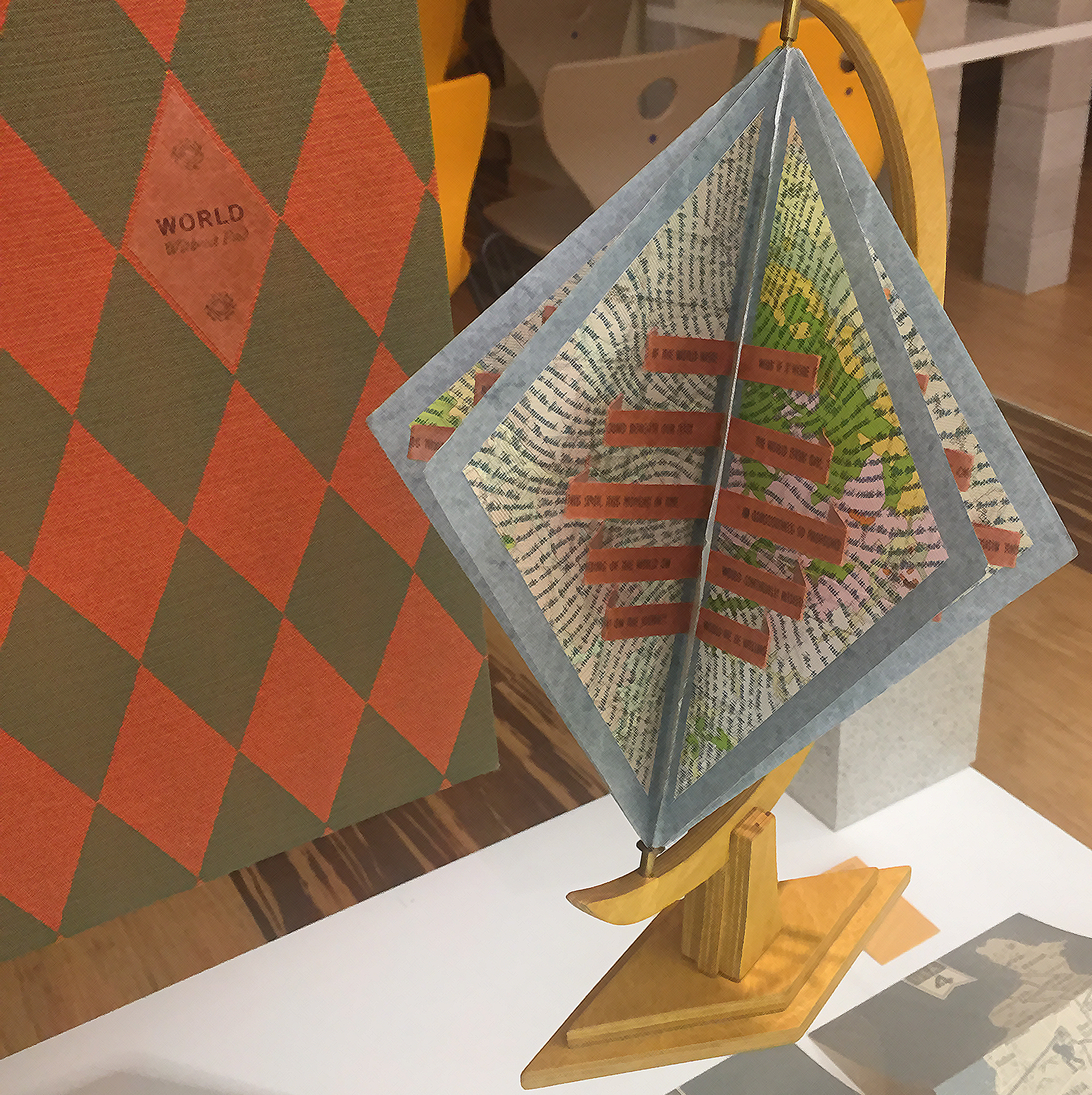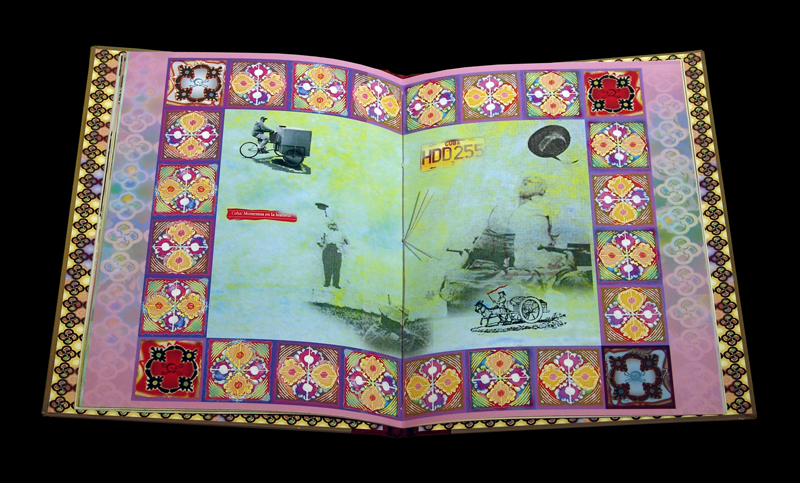Books as Aesthetic Objects


By Johanna Drucker and Brad Freeman
by JAB Books, 2006
In the big book, the words and the pictures, the text and the illustrations show a city of contrasts, of one kind of material urban history stopped in its tracks, of another kind of social history being made. And momentously, they record the vision of arts and letters growing in the soil created by those contrasts.
The vivid endpapers with Spanish colonial design and the reproduction of a frontispiece from 1836: “Samples of the letters of the Marina Press” echo a different Cuba, the island country with wrought-iron balconies, Spencerian calligraphy, florid printing, brilliant colors. The reality lies in the first photo-montage: the street-front buildings retain the balconies, but behind them lie acres of disintegrating structures, “the surfaces of everything worn, with innumerable layers of use-scraped, scratched, distressed, marked, repaired, patched, decaying, crumbling.
And as mentioned many times, the signs are now hand-lettered, hand-painted burned into wood, cast in plaques. The ‘muestras de los caracteres de letras’ of that earlier Marina press, the symbols of high culture of an earlier age, are now unavailable.
Even the museum is not given to fine arts: it shows the recent history of the Castro era. It is a social and military history, its heroes Fidel and Che, its unadorned artistry their battle scars and maps. The Battista-era hotel where Drucker and Freeman dine showcases girls who make their living by selling their bodies; their artistry is not enough.
And yet, Drucker and Freeman discover “a culture in which the avant-garde remains one of the peculiar vestiges of a time-warp past struggling, like so much of the island nation, to anticipate its future.” They attend a reading in the Torre de Letras celebrating the second anniversary of this space where writers meet and share their work. They reproduce in the little book their experience in this setting: a prose poem “Musica” by the Poet Reina Maria Rodriguez, who at the celebration is “the severe queen of the event.” The next day they return to the Torre where Charles Bernstein, a post-modern American poet, reads his work assisted by his extraordinary Cuban translator who has worked intently to capture the resonances of Bernstein’s avant-garde use of language. They note that in China, another Communist stronghold, Bernstein’s official translator found his poetry decadent and could not understand it..
Thus the two books capture not only a record of the externals of the artists’ trip, but also a unique vision of the interior complexity of Cuba, its political present, and the indomitable evidence of its unique creative spirit.
- Judith Klau